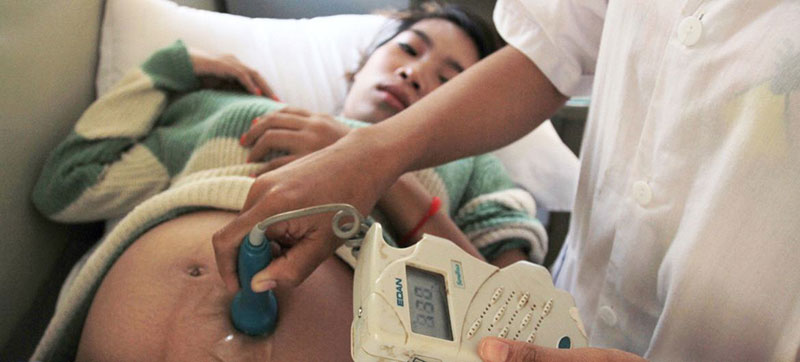 Pregnancy
Pregnancy
Mistreatment in childbirth, a human rights and healthcare problem, new study warns
New York: Women across the world face unacceptable mistreatment during childbirth, according to a new study from the World Health Organization (WHO) and the Human Reproduction Programme (HRP) launched on Wednesday.
The new supplement, Dignity and respect in maternity care, spotlights how women and their newborn babies are treated during childbirth and offers a path to improved facility-based care.
Human rights issue
Advancing that mistreatment of “pregnant women, adolescent girls, and persons, as well as newborns” is a “pervasive problem around the globe”, WHO alerted for women everywhere facing violations of their rights – including rights to privacy, informed consent, and the right to have a trusted companion of choice throughout childbirth.
Among the serious violations of human rights, standards of care and basic humanity faced during childbirth, include those in labour being wheeled into surgery for caesarean delivery without informed consent, and postpartum mothers being detained for days after childbirth, to extort payments for care.
Furthermore, cases are cited of babies being swapped in nurseries to families with more power and wealth; childbearing persons suffering beatings and humiliation; mothers and newborns being separated from each other; and childbearing people being ridiculed for their choices and coerced to endure treatment they do not want.
Losing trust in the health facility
According to the study, mistreatment of parents and newborns around the time of birth is often ‘normalised’ in the hospital culture and exacerbated by the lack of awareness of patients’ rights, gender discrimination and deficiency in clinical empathy skills.
Those experiences of abuse contribute to eroding trust in the health facility, which can then mean that women are less likely to access facility-based care before, during and after birth.
This can have grave consequences for the health and well-being of women and their babies and can even put their lives at risk, the UN health agency reported.
“Improving the experience of women throughout labour and childbirth is essential to help increase women’s trust in facility-based care – as well as ensuring access to quality postnatal care following birth”, said Özge Tunçalp, Medical Officer at WHO and the agency’s HRP research programme.
Learning, to improve quality of care
The newly published supplement in the BMJ Global Health outlines the path to respectful maternity care through national policies, and changes at the facility level, but also at a community level to challenge the normalisation of mistreatment.
WHO/HRP stated that achieving respectful maternity care is the bare minimum that “should and can be provided to everyone, everywhere, now”, and called for zero tolerance for any kind of abuse.
“When women and their babies receive respectful, quality, person-centred care, they are more likely to access contacts with health workers and they are more likely to access potentially life-saving care at a health-facility,” said Dr. Tunçalp.
According to the researchers it is essential to better understand and improve women’s experiences of mistreatment during childbirth but also across the continuum of maternity care.
For that, they are calling for more research, with a focus on new ways of collecting data, understanding how experiences vary depending on context and how these experiences impact overall outcomes.
About the new supplement
The study presents evidence from a WHO multi-country study on the positive impact of labour companions, the need for increased privacy measures and improved ways to measure the experiences and satisfaction women have when giving birth, at any given health care facility.
Support Our Journalism
We cannot do without you.. your contribution supports unbiased journalism
IBNS is not driven by any ism- not wokeism, not racism, not skewed secularism, not hyper right-wing or left liberal ideals, nor by any hardline religious beliefs or hyper nationalism. We want to serve you good old objective news, as they are. We do not judge or preach. We let people decide for themselves. We only try to present factual and well-sourced news.






